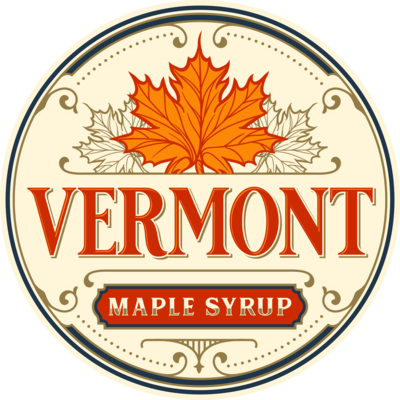Canadians and Vermonters generally agree on many things: maple syrup, however, is not one of them. No Vermonter will prize Canadian maple syrup over his product. In the same respect, no Canadian will prize Vermont maple syrup over his product. Albeit Canadians and Vermonters are known as friendly northern cousins, it seems that the maple syrup debate is an eternal stalemate neither side will win.

What are the differences, if any, between Canadian maple syrup and Vermont maple syrup? Is one truly better than the other? How do the maple syrup industries stack against each other? Do they taste the same, or are there differences? In this article, we will examine the neighborly competition between Canadian and Vermont maple syrup.
Canada produces a lot of maple syrup
Globally, Canada produces 85% of all maple syrup (1). No country or U.S. state can compare with Canadian production levels. This is because Canada – especially Quebec, where 92% of Canadian maple syrup is produced – has an ideal climate for syrup production. Late Canadian winters have the perfect mixture of cold nights and warm days. In addition, Canada is home to an abundance of sugar maples – all perfect candidates for tree tapping.
Vermont, on the other hand, annually produces 2.5 million gallons of maple syrup, which equates to roughly 50% of all domestic maple syrup production (2). This still pales in comparison to the 14.3 million gallons produced annually by Canada. Vermont, like Canada, has suitable conditions for harvesting maple syrup. However, Canada’s perfect climate and vast troves of sugar maples give it the upper hand when it comes to production.
The Federation of Quebec Maple Syrup Producers dominates Canadian and global markets
The Federation of Quebec Maple Syrup Producers also nicknamed the “maple syrup cartel,” is a government-sanctioned private organization that regulates the production and marketing of maple syrup in Quebec. Since Quebec produces 92% of all Canadian maple syrup, researchers estimate that FPAQ controls 94% of Canadian maple syrup and 77% of the world's supply. Today, roughly 7,300 producers belong to the Federation of Quebec Maple Syrup Producers (3).
The Federation's monopolistic control over the maple market allows them to set and control global maple syrup prices. This means that maple syrup prices are also fixed to the Canadian dollar. When the Canadian dollar is strong, maple producers in the U.S. enjoy higher revenues, when it falls – quite the opposite. Producers in Quebec are also incentivized to sell to the Federation, as they have chosen a fixed price ideal for producers.
Vermont producers do not answer to the Canada-based Federation of Quebec Maple Syrup Producers
Because Vermont producers don’t deal directly with the FPAQ, Vermont farmers are able to be more independent in their craft. For Quebec producers, there is less competition and, therefore, less incentive for producers to make outstanding maple syrup. The Federation will always buy maple Syrup from Quebec's bulk distributors no matter what. These producers must ask themselves if it is then worth it produce to the best of their ability, probably not.
Vermont, on the other hand, is home to independent producers. Vermont producers are famous for their “craft” maple syrup, which includes wood-fired, bourbon barrel-aged, old-growth, vanilla, and infused maple syrups.
Increased local competition in Vermont allows for a healthier, balanced variety of syrup available in the market. Producers have the incentive to create to the best of their ability, as they sell directly to consumers.
How do they taste?
For an average bottle of grade A amber, dark, golden or very dark maple syrup flavors don't vary too much across the border. As mentioned, Canadian maple syrup is controlled by a government-sanctioned private enterprise whose primary interest is in profits. This means that independent Vermont producers lacking the Federation have more agency over their products.
Although the average bottle of real maple syrup tastes relatively the same, there is certainly more colorful and tasteful variation among Vermont producers that Canadian maple syrup lacks.
How do things ultimately stack up?
The world of maple syrup is certainly not a black and white one. When it comes to taste, the two products share some similarities. However, Canadian and Vermont maple syrup are still very different from each other. Next time you find yourself shopping for maple syrup you can now know and appreciate the nuances between the two competing industries.
***
Vermont Maple Syrup makes the best organic Vermont maple syrup, maple sugar, and maple candy you will taste. In classy, nostalgic packaging that puts Vermont first. Organic, pure small-batch maple syrup and maple sugar — tapped, collected, and made available from our 1,200-acre farm in the small town of Guilford, Vermont, USA.










